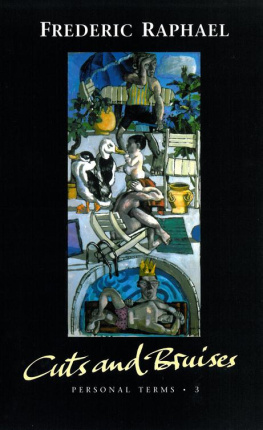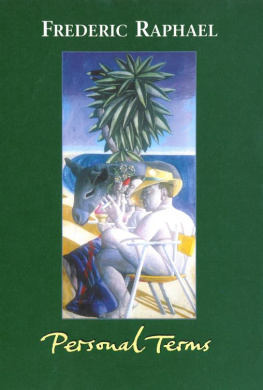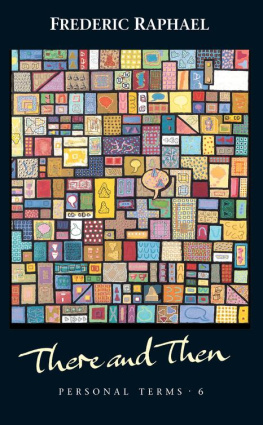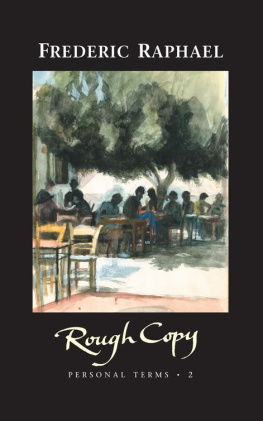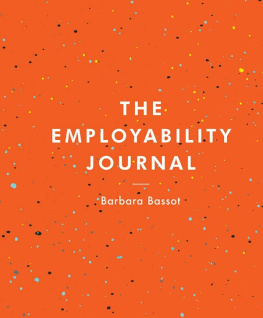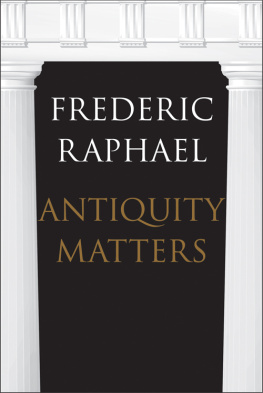A friend of mine at Cambridge, a pioneer of computer technology, claimed to have begun his PhD thesis with As I have said before. Since this is the third volume of my notebooks, it may sound more hollow than convincing to say again that I never intended to publish them. It is, however, still true. Notebooks are like a huge shadow which lengthens as you go forward, but remains invisible until you look back.
All but one or two of my cahiers are written in the spiral-bound squared exercise books of the kind used by French students. They have accumulated, as if written by some stealthy third hand, into a self-generated dossier of my life as a writer. I might have been spying on myself. The disjunctive paragraphs supply a join-up-the-dots portrait of the writer among others. If I am unsparing of those whom I describe, I have been hardly less harsh on F.R.
Since my purpose was to catch and pin ideas and images which might be useful later, I did not strive to be a phrase-maker, still less an entertainer, even of myself. Yet, since they are written in pen, these notes have more of a physical connection with their author than whatever I have typed or, more recently, entered on a word-processor, which is, nevertheless, the compulsive revisers and rewriters invention of choice. Holding a pen makes manuscript more like drawing than does the use of mechanical means. You declare yourself more revealingly in handwriting.
Only one criticism of the last volume, Rough Copy, stung me when I glanced at it. A reviewer about whose fiction I was less than complimentary some forty years ago, had bided his time, it seemed, to accuse me of name-dropping. In truth, the company of the famous has small appeal for me; and that of the titled or the rich none at all. I remember an occasion when I was in George Steiners house in Cambridge and he invited me, at short notice, to stay for dinner. Arthur Koestler was coming, as well as two Nobels. Presumably some classy person had failed the Steiners feast, and disrupted their seating plan, at the last moment. I was, Steiner reminded me, being given the chance to meet a living legend (much I was indeed tempted, but I had promised my wife that I would be home for dinner. I declined to be impressed. You are uxorious, sir, George said.
Oh, is it name-dropping to call Steiner George? Or to say that one has been in his house? Come on! Since I am now over seventy years old and will, next year, have been publishing books, writing articles, essays, scripts and plays, for half a century, must I really apologise for having met a number of people whose names are, or have become, widely known? That I include notes about some of them, and have been friendly with a few, hardly turns me into Chips Channon, Cecil Beaton or Alan Clark.
I have, for most of the time, abided by Willie Maughams advice: if you have to choose between the company of a prominent politician and that of a suburban vet, the chances are that the latter will be more unguarded, and tell you spicier stories, than a cabinet minister.
These notebooks are evidence less of self-importance or social climbing (I have no head for those heights) than of long and emulous addiction to the Carnets or Cahiers in which French writers, of many persuasions and styles, have encapsulated their private views of life. Logan Pearsall Smith is one of the few English authors who have done the same; and he was a trans-cultural American. Cyril Connolly, who was briefly Pearsall Smiths secretary, did something similar, but more showy (and delicious) in The Unquiet Grave, his masterpiece. The quality of a writer is measured more by the attention he gives to his work than by whether or not he really means or really feels what he says: sincerity is not an art-form.
Those who write cahiers need by no means be at the centre of things. My most recent purchase in the genre is of the work of Joseph Joubert, who began writing in the last decade of the ancien rgime. Born in 1754, he lived through the Terror, the Consulate, the Empire and the Restoration of the Bourbons, without much altering his tone of innocence mlancholique or, it seems, his style of life: his passport of 1822 notes, as a distinguishing mark, that he wore a perruque (and that he was more than six feet tall, a useful height for an over-viewer). During all this time, he rarely commented directly on current history, though in 1804 he did allow himself to say of Napoleon, Il a tu le duc dEnghien, mais le duc dEnghien a tu sa gloire. Napoleon had killed the Duke dEnghien, but the duke had killed Bonapartes good name. This is neater than Talleyrands famous Pire quun crime
Provincial philosophe and classical scholar, Joubert described himself as Platone platonior: one who out-Platoed Plato. He sustained his succinct prolificity through no less than 205 cahiers as well as in many pages of unbound observations. If he was never in the first rank, Sainte-Beuves Portrait littraire says of him that his work crowned the series of French aphorists which began with La Rochefoucauld, continued with Pascal, La Bruyre, Vauvenargues et qui se rejoint, par cent dtours, Montaigne.
More recently, Maurice Blanchot pointed out that Joubert did not, like the others, specialise in bons mots. Typical of Jouberts austerity is his remark of July 1797: La Bible est aux religions ce que lIliade est la posie (The Bible is to religions what the Iliad is to poetry). It is not an aperu of rare quality, but then we get: et [les gens] puisent dans ce livre une sagesse qui ny est pas (and people read into this book a wisdom which is not there). The dry ambiguity matches that of Gibbons footnote about Apollonius of Tyana: Apollonius was born at about the same times as Jesus Christ. His life (that of the former) is related in so fabulous a manner that we are at a loss to discover whether he was a sage, an impostor, or a fanatic.
Jouberts own literary creed was advertised in a programmatic entry of the previous day: Ne pas: dfinir ce qui est connu: un bavardage. Mettre en question ce qui est en fait: mauvaise foi, ignorance. Rendre abstrait ce qui est palpable: charlatanisme. Et offrir des difficults qui ne soffrent pas elles-mmes ou nont quune vaine apparence: chicane. Which, being translated, comes to: Donts: define what is already known: windbaggery. Put in question what is actually the case: bad faith, ignorance. Render abstract what is palpable: charlatanry. Create difficulties which are not really there, or have nothing but the empty appearance of problems: quibbling (with a hint of chic perhaps). The list just about covers the sins of the showboating intellectual down the ages, never so keenly paraded as virtues as in todays academic hermeneutics.
As a philosophe (and youthful protg of Diderot), Joubert was as keen a reader of Locke and Berkeley as of Descartes, about whose scepticism he was, to say the least, sceptical. Noting that Locke observes Maxims do not enlighten, Joubert adds that they may not, but that they guide and direct: Elles sauvent aveuglement. Cest le fil dans le labyrinthe, la boussole pendant la nuit (They save blindly: the thread in the labyrinth, the compass at night).
Jouberts irony often goes no further than an accurate record of casual remarks. For instance: Le mot de Mme de Genlis: Aux yeux de la religion, il ny a point de mariages mal assortis (A remark of Mme de Genlis: In the eyes of religion, there is no such thing as unsuitable or ill-suited marriages). Does this hint that Joubert was happily or unhappily matched? Or that Mme de Genlis believed in marriage or that she was a libertine wit? The remark stands free; you may make of it what you will, and welcome. In this, Joubert is wittier, and more varied, than E.M. Cioran, a voluble modern epigrammatist who has his glum elegance, but is so resolutely and invariably disillusioned as to smack of smugness.

